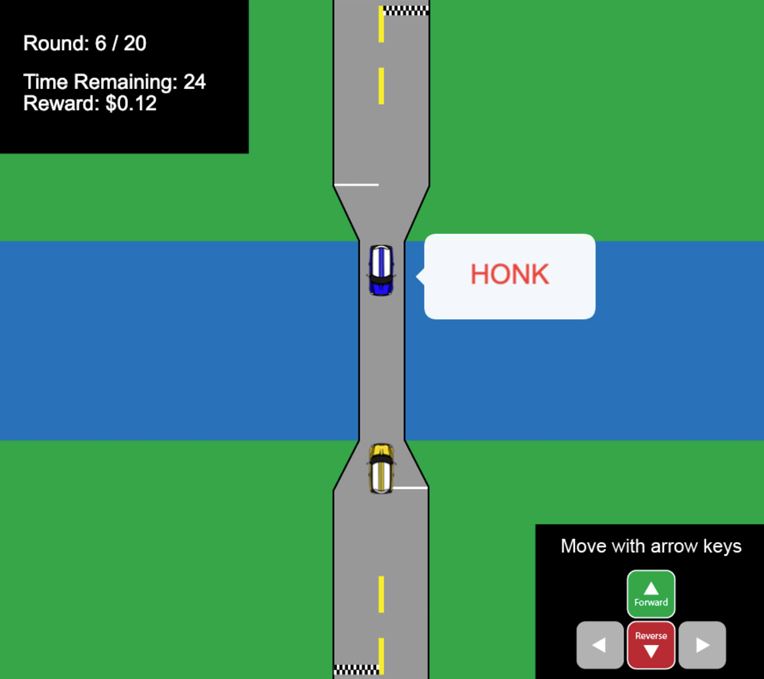game theory
Stackelerg punishment and bully-proofing autonomous vehicles

Mutually beneficial behavior in repeated games can be enforced via the threat of punishment, as enshrined in game theory’s wellknown “folk theorem.” There is a cost, however, to a player for generating these disincentives. In this work, we seek to minimize this cost by computing a “Stackelberg punishment,” in which the player selects a behavior that sufficiently punishes the other player while maximizing its own score under the assumption that the other player will adopt a best response. This idea generalizes the concept of a Stackelberg equilibrium. Known efficient algorithms for computing a Stackelberg equilibrium can be adapted to efficiently produce a Stackelberg punishment. We demonstrate an application of this idea in an experiment involving a virtual autonomous vehicle and human participants. We find that a self-driving car with a Stackelberg punishment policy discourages human drivers from bullying in a driving scenario requiring social negotiation.
M. Cooper, J. K. Lee, J. Beck, J. D. Fishman, M. Gillett, Z. Papakipos, A. Zhang, J. Ramos, A. Shah, and M. L. Littman (2019), “Stackelberg punishment and bully-proofing autonomous vehicles,” in 2019 Interactional Conference on Social robotics, 368-377.